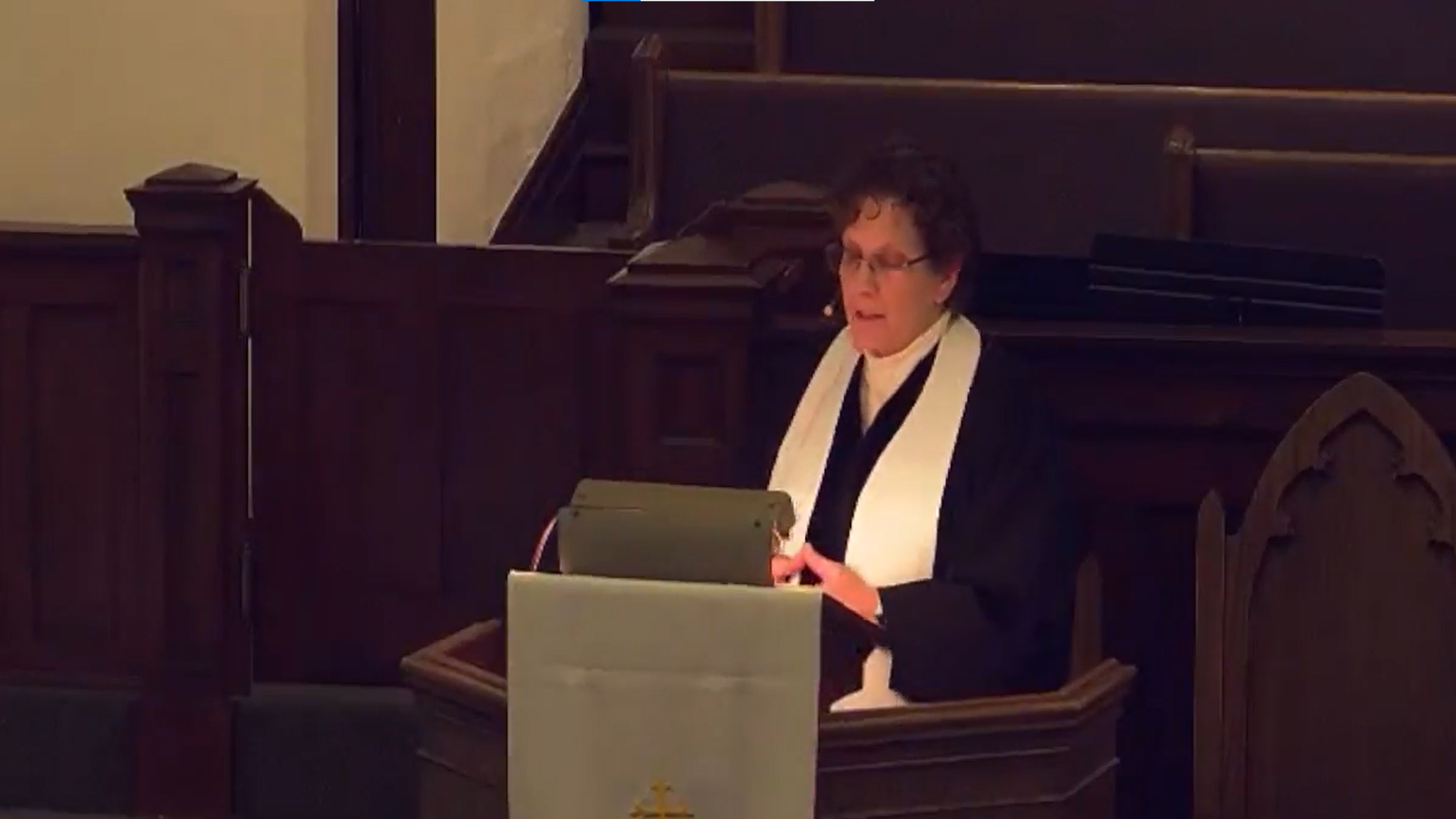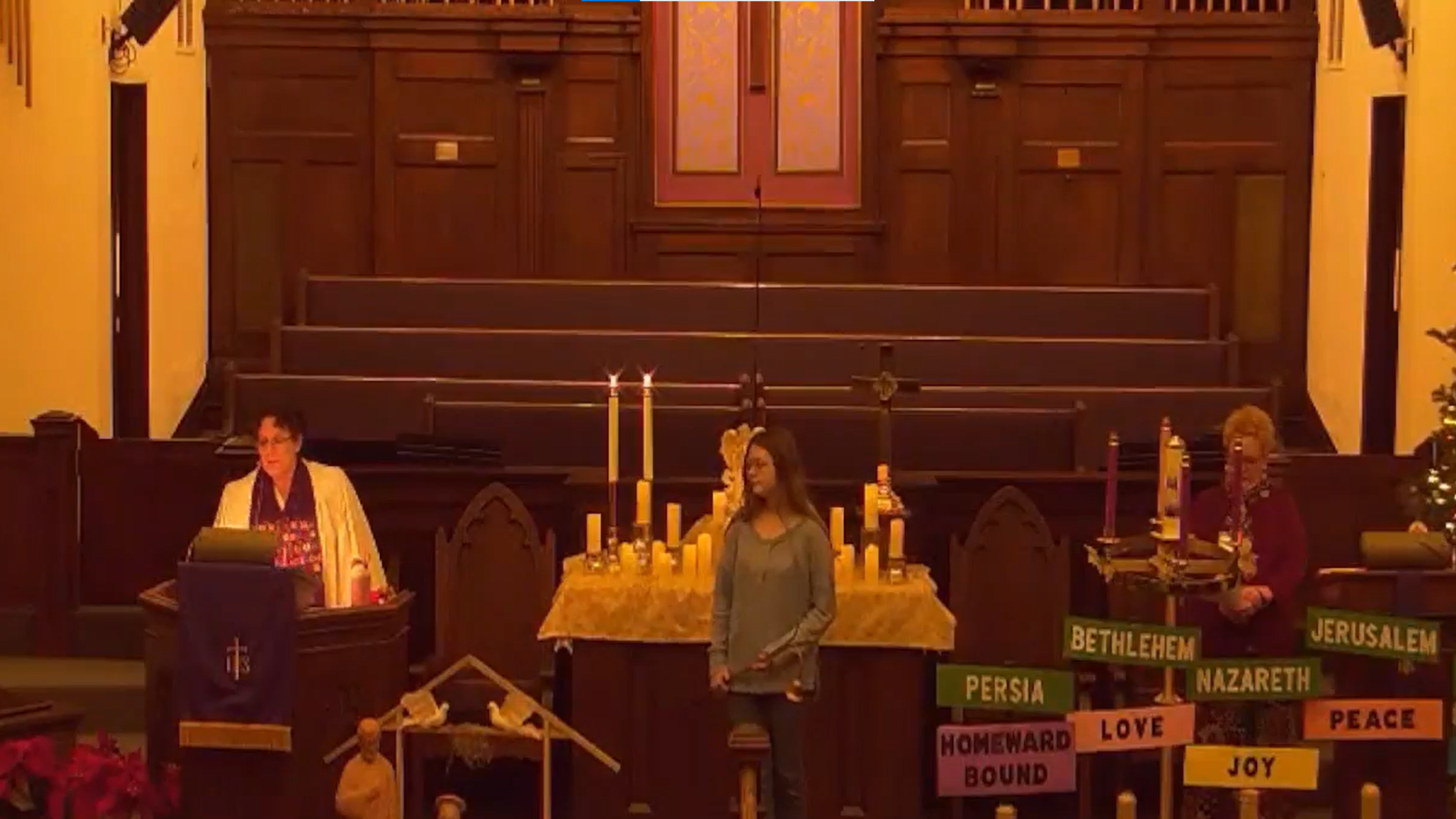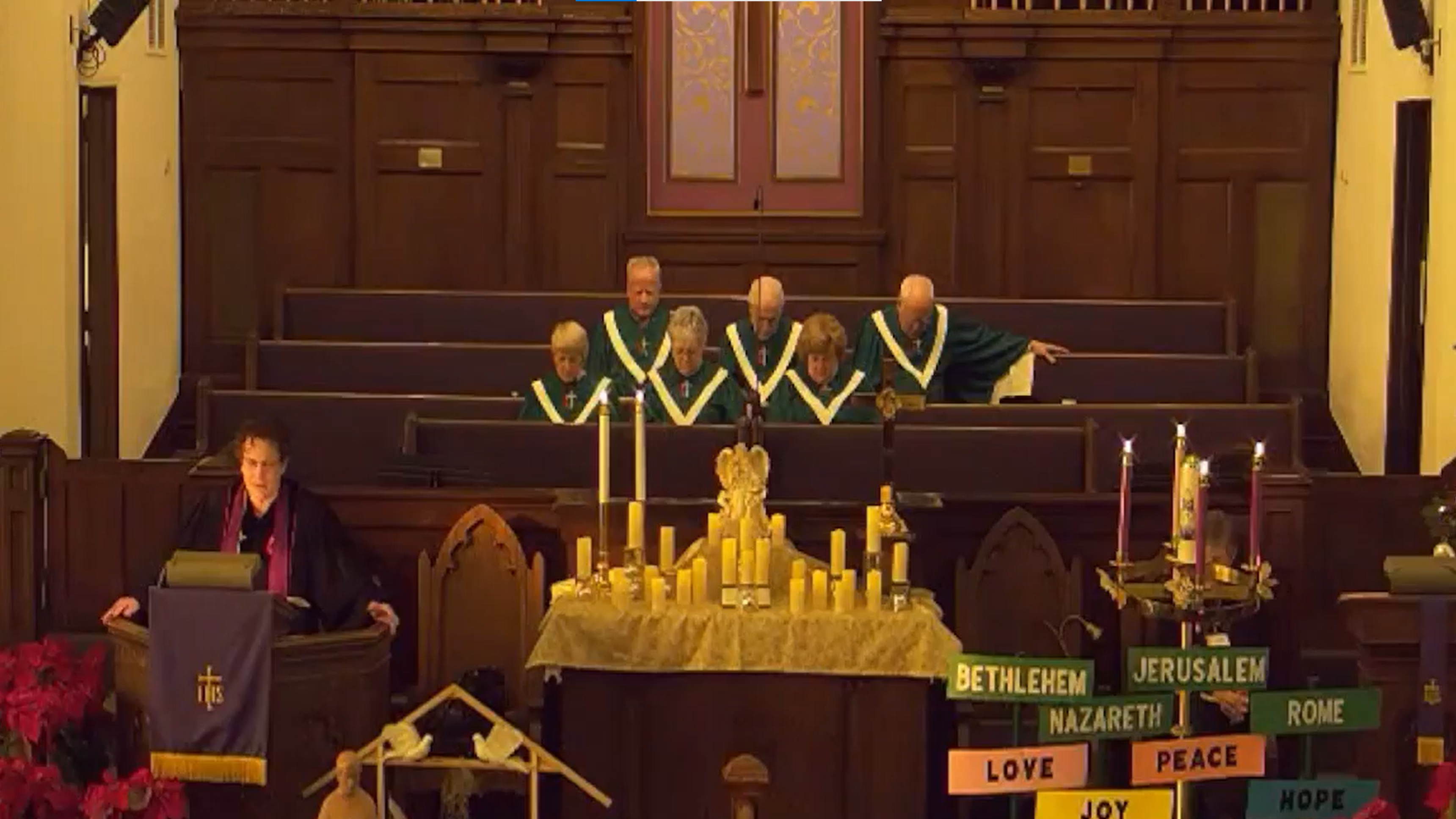
Even in Jesus’ day, twelve was an in-between time. Our Scripture tells us that Joseph and Mary traveled to Jerusalem every year for the Passover festival, as many Jewish families did to fulfill their traditional obligations. At twelve, Jesus probably had a number of friends, and as his family traveled to and from Jerusalem, he probably spent quite a bit of time traveling with other families.

Within this text there is a hidden gem – a message, or perhaps a challenge, for us in the 21st Century, and every century leading up to this moment in time. According to our Scripture, the wise men from Persia traveled to Jerusalem first, because they saw the star rise, which they interpreted as an announcement of a new King for the Jews and they followed protocol – they traveled to the place where Jewish kings should reside.
Browse all of the Sermons and Messages
Christ’s ministry demonstrates that everyone is worthy of God’s love, and Christ’s sacrifice purifies us so that the Holy Spirit can reside in us. God with us. God in us. This is where God’s plan for us comes to fruition. When we accept God’s grace and forgiveness and begin to live our lives as God intended us to live, we fully develop our human capabilities and we can embody, or incarnate, the gospel message of justice and peace the best way possible.
God is with us and for us…not just some of the time, but all of the time, even when we don’t act as we want, even when we don’t live into the identity God has given us, or make it to church on a regular basis.
When you think about it, this fairy tale is not so different from our own journeys. We often encounter things that cause us to stumble into darkness. And we are held there as if by a spell, unable to experience joy or to see any hope. And so we wait for our hero or heroine to arrive. We wait for that voice to call out to us from the dessert.
Through Christ, we are formed into a new body with new, extended family members. Our existing family remains, but at the same time, new family members are found, bringing additional love into our lives and sometimes filling existing voids.
Work on us. Reshape us. Help us to mend our broken relationships. Help us to be in right relationship with you. Anticipating something more and better, we wait, we imagine, we believe, and we grow in character, as God does what God does, smoothing us, reworking us, making something beautiful out of an old lump of clay.
As the world becomes more secular, many people don’t really know the Christ we claim to follow either, because getting to know the real Jesus is sometimes a little stressful and confusing. Jesus challenges us to alter our priorities, values, and occasionally even the direction of our lives.
God has blessed us with a great church and a wonderful opportunity to work for God’s kingdom in the name of Jesus Christ. Yet this work often fails, not because of God or structures or well-crafted plans. The work of God’s kingdom often fails because of us. Like the gatekeepers of the Wall, we run the risk of being bribed and seduced to compromise our faith and serve other gods.
In the Bible darkness – a place of nighttime, sometimes a place of fear or pain, and often a place of waiting – is contrasted with the use of light – a place of daytime, boldness, peace, and occasionally, a place of revelation. It is the light and dark working together that offer us expressions of God’s presence in our lives. When we are in the places of fear in our souls, God is with us, offering us boldness and peace.
I have known people in my life in whom the very Spirit of Christ was manifest in such a way that I could see it and feel it. People who exhibit this depth of faith are like leaven. They literally spill the Spirit out on to everyone they meet, so that it infects the people around them. As I sit here writing these words, I feel myself surrounded and embraced by the great cloud of witnesses who, like Paul and the people of the Thessalonian church, infected me and continue to infect me with the Spirit of the living Christ.
I don’t think that I was able to grasp the depth of this particular parable until a few years ago when I stood in the check-out line at Kohls and the person in front of me was purchasing a huge pile of dress-up clothes – dresses, suits, dress shirts, ties, socks, shoes, those types of things. It looked like everyone in the household was getting a new set of clothes. Because there wasn’t any major sale going on, the final cost was around $700.
Jesus said that his followers would be marked, and known, by their love. John Wesley believed that worship was one of the means of grace, but not the entire experience. Love becomes an embodied expression of one’s faith through acts of mercy carried out in the community. In other words, church is an action word. Church is a verb. Church is love enacted.
Although I believe that God expected and deserved the faith and trust of Israel, it was not until the incarnation of Christ that humanity really understood what it means to experience God with us. I don’t think the Israelites complained anymore than we do in our everyday lives. The difference is that we aren’t struggling for our survival in the wilderness.
Both lessons this week remind us of God’s generosity and this is one of those times when we have to take a God-view of the world. At this time of the year I often think of the early settlers in Plymouth. With the onset of winter following a poor harvest, I wonder if they looked back on their lives in Europe and forgot about the persecution and poverty they faced there.
In our gospel today, Jesus reminds us that there are no shortcuts when it comes to the Kingdom of God. When Peter asks, “Lord, if another member of the church sins against me, how often shall I forgive? As many as seven times?” And Jesus says to him, “Not seven times, but, I tell you, seventy-seven times.” Seventy-seven times? Other translations say seventy times seven. Either way, that’s a lot of forgiveness.
But here’s the thing. God doesn’t simply invite us into the Kingdom of God. God offers us a drink and that is the cup of salvation, or the opportunity to live and love as Christ did. We are called to be in right relationship with God and with others, but as humans living in the 21st century, we tend to minimize the importance of relationships.
As the Church, I think we have to seriously consider how we react, or respond, to these situations, because how we respond defines who we really are. It’s human nature to want to choose one side or the other. But Jesus challenges us to live like he does. Throughout the gospels, we don’t see Jesus taking sides. Jesus responds to each individual situation in the same way – with compassion. Whether a person is mourning, chronically ill, disabled, immoral, hungry or frightened, Jesus offers compassion.
We have forgotten that we have a God who loves us so much that he sacrificed his only son so that we won’t perish, but have everlasting life. Jesus went to the cross and died and was resurrected so that we could discover that God’s love is, in fact, for all; that God is working in us and through us to make this world a more just and equitable place; that God will grant us courage and grace sufficient to meet the challenges of the day; and that when we stand with and for those who suffer or are persecuted, we encounter God in a powerful and palpable way.
The topic I believed needed to be addressed was how we get so focused on the problems that we don't look for solutions. We get so wrapped up in what is wrong with the world, the church and each other that we forget the reason we are here, our purpose, our goal, and our reward. I wanted so badly to pick at a wound that needed to heal.
Are you hiding anything today? Instead of owning your sin, is it owning you? Does lack of forgiveness make you want to flee? Verse 3 says that keeping silent about sin can also make us feel sick: "When I kept silent, my bones grew old through my groaning all the day long." When he tried to ignore his iniquities, his bones felt like they were decaying.
I think sometimes relationships are undervalued. We often measure our happiness by the number of things we have, but our real treasure is in our relationships. In our scripture today, Jesus reminds us that life’s greatest treasure is to be a part of God’s kingdom through our relationship with Jesus Christ.
When we try to figure out God’s specific plan for our own lives, sometimes we have to accept circumstances and situations that we may not agree or be comfortable with. God challenges us to use the innate talents and gifts we have been graced with and God also challenges us to live the portrait of the kingdom that Jesus reveals to us in the gospels.
The point is, dirt is dirt, regardless of where you live, and some soils are going to produce more fruit than others. But as I read Jesus’ explanation for this parable, I don’t think we are supposed to throw our hands up in despair when we plant seeds in rocky ground, or on the beaten path, or in Indiana clay. I think Jesus is asking us to consider what kind of soil we are going to be.
Isn't that amazing? God knows everything that we go through. Nothing that happens to us that he doesn't know about. When we feel lonely and totally abandoned, when it seems that our prayers are unanswered, when everything seems hopeless, God knows and God cares.
You may be wondering why I am giving you instructions about birdwatching when there are so many other important things going on in our world today. The point is that in order to be a successful birdwatcher, you have to pay attention. Today’s gospel is about paying attention.


